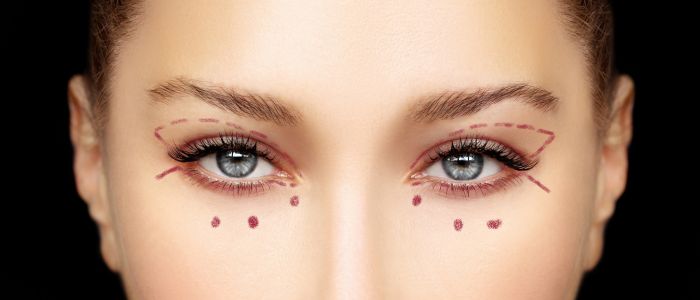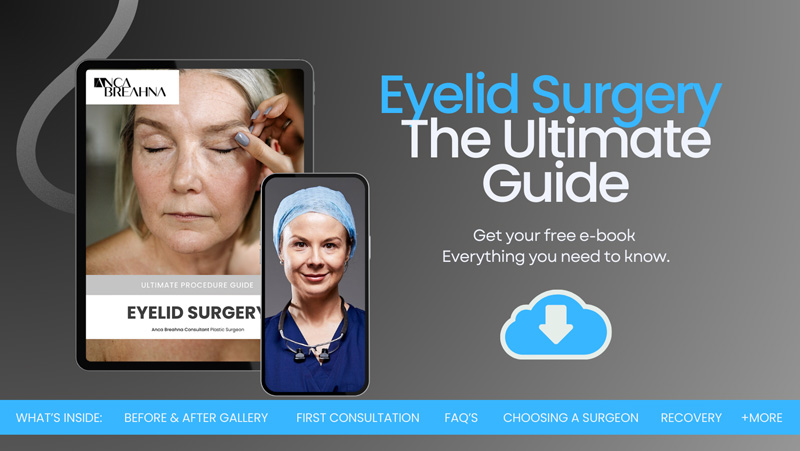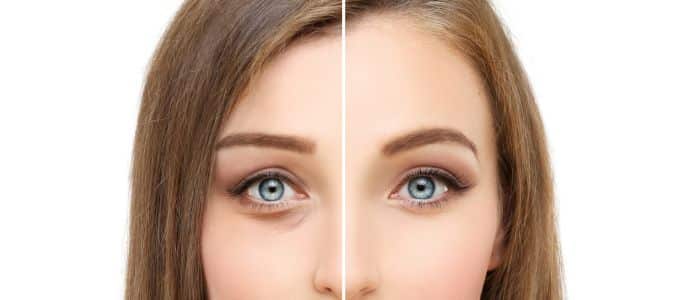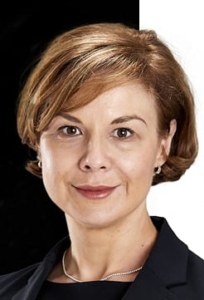
- Minimising Post-Operative Swelling and Bruising - Essential Tips for Blepharoplasty Recovery
- Download the Eyelid Surgery Guide
- Initial Recovery Phase
- Why Swelling and Bruising After Blepharoplasty Occur?
- Tips for Managing Swelling and Bruising after Blepharoplasty
- Immediate Post-Op Care
- Long-Term Care Strategies
- What to Avoid During Recovery after Blepharoplasty
- Common Mistakes
- When to Seek Help
- FAQs about Recovery after Blepharoplasty Surgery
- How long will it take for me to fully recover from blepharoplasty surgery?
- Can I wear makeup after blepharoplasty surgery?
- When can I resume exercise after eyelid surgery?
- Is it normal to experience dry eyes after blepharoplasty, and how can I manage it?
- How can I ensure the best possible results from my blepharoplasty surgery?
- Further Reading about Eyelid Surgery with Consultant Plastic Surgeon Anca Breahna
- Medical References about Blepharoplasty Surgery
Minimising Post-Operative Swelling and Bruising – Essential Tips for Blepharoplasty Recovery
Eyelid surgery, also known as blepharoplasty, has emerged as one of the most sought-after cosmetic procedures globally. Its appeal lies in its dual ability to enhance facial aesthetics and improve functional issues, offering a significant boost in self-confidence and quality of life for many. Whether for removing excess skin that obscures the visual field or for cosmetic reasons such as reducing bagginess from lower eyelids and tightening drooping upper eyelids, the motivations behind opting for this surgery are varied. How to reduce swelling and bruising after blepharoplasty is one of the most commonly asked post-operative questions.
Recovery from eyelid surgery, while typically straightforward, comes with its set of expectations. The experience of swelling and bruising after blepharoplasty is a natural part of the healing process. However, the appearance of these symptoms can be surprising and sometimes alarming for patients. It’s important, therefore, to set realistic expectations right from the start.
Download the Eyelid Surgery Guide

Initial Recovery Phase
The initial phase following surgery is critical. Patients are often curious about what to expect in the days and weeks after the procedure. Swelling and bruising can vary significantly from person to person, influenced by factors such as the individual’s healing response, the extent of the surgery, and adherence to post-operative care instructions. Generally, swelling is most pronounced in the first week and gradually subsides over the following month. Bruising may follow a similar timeline but can also vary in intensity and duration.
Setting the right expectations involves preparing patients for the visual and physical sensations they might encounter. While photos and descriptions can provide a benchmark, each person’s recovery journey is unique. In this blog, Chester Consultant Plastic Surgeon Anca Breahna’s goal is to reassure patients that, despite the initial discomfort and appearance, these symptoms are a normal part of the healing trajectory. Moreover, emphasising the importance of following post-operative care instructions can not only alleviate these symptoms more effectively but also optimise the overall outcome of the surgery.
Educating patients about the recovery process plays an important role in their experience. By providing an overview of what to expect, including potential variations in swelling and bruising, Anca aims to help mitigate concerns and foster a positive mindset.
Why Swelling and Bruising After Blepharoplasty Occur?
Swelling and bruising are the body’s natural responses to surgery and are particularly noticeable following eyelid surgery due to the delicate and thin skin around the eyes. When the body undergoes any surgical procedure, it triggers an immediate response to heal the affected area. This process begins with inflammation, an important phase where the body increases blood flow to the site, bringing in white blood cells, nutrients, and enzymes to kickstart the repair of tissue. In the case of eyelid surgery, this necessary inflammation results in swelling. The degree of swelling is partly determined by the extent of tissue manipulation during surgery and the body’s unique healing response.
Bruising, on the other hand, results from the leakage of small amounts of blood from the capillaries into the surrounding tissues, caused by the surgical trauma. This leakage is what gives the skin the typical blue, purple, or yellow discolouration associated with bruising. The thin skin around the eyes can make these discolourations more prominent and visible.
The timeline for these symptoms can vary widely among patients. Typically, swelling peaks within the first 48 hours post-surgery and then gradually diminishes over the next two weeks. Bruising follows a similar pattern, with the most intense colours appearing within the first week and then slowly resolving as the blood is reabsorbed by the body. But it’s not uncommon for some degree of swelling and discoloration to persist for several weeks or even months, depending on individual healing rates and the specifics of the surgical technique used.
Some individuals may experience minimal swelling and bruising, while others might see more pronounced symptoms. Factors such as age, genetics, nutritional status, and lifestyle choices (e.g., smoking, alcohol consumption) can all influence the recovery process. Highlighting the importance of following post-operative instructions, such as avoiding certain medications and activities, can further guide patients towards a smoother recovery, minimising the risk of exacerbating swelling or bruising.
Tips for Managing Swelling and Bruising after Blepharoplasty
Post-operative care following eyelid surgery is essential for minimising discomfort, accelerating the healing process, and achieving the best possible outcomes. Effective management of swelling and bruising after blepharoplasty not only enhances physical recovery but also aids in the psychological well-being of patients, as they navigate through the recovery phase. Here are some strategies for managing these common symptoms post-surgery:
Immediate Post-Op Care
- Cold Compresses: One of the most effective measures to reduce swelling and bruising is the application of cold compresses. The cold helps constrict blood vessels, reducing fluid accumulation and blood leakage into the surrounding tissues. It’s important to use cold compresses correctly – wrapped in a soft cloth to avoid direct contact with the skin, and applied intermittently (20 minutes on, 20 minutes off) during the first 48 hours after surgery
- Head Elevation: Keeping the head elevated above the heart level, especially during sleep, can significantly reduce swelling. This position facilitates better drainage of fluids away from the face and eyes. Using extra pillows or a foam wedge can help maintain this elevated position comfortably throughout the night
- Rest and Protection: Adequate rest is paramount in the initial days following surgery. Patients should avoid any strenuous activities that could increase blood pressure and, consequently, swelling or bleeding. Protecting the eyes from potential irritants such as bright light, dust, and smoke by wearing sunglasses when outdoors is also advisable
Long-Term Care Strategies
- Gentle Massage: After the initial critical period (usually after the first week, upon Anca’s approval), gentle massage around the eye area can promote lymphatic drainage and help reduce persistent swelling. However, this should be done cautiously and preferably under the guidance of the surgical team to avoid any undue pressure on the healing tissues
- Hydration and Nutrition: Proper hydration is essential for reducing swelling, as it helps flush out toxins and excess fluids from the body. Additionally, a balanced diet rich in vitamins and minerals, particularly vitamin C and zinc, can support tissue repair and reduce the duration of bruising
- Avoiding Certain Activities and Substances: Patients are advised to avoid activities that can strain the eyes, such as reading, using computers, or watching television, for long periods during the early recovery phase. Smoking and alcohol consumption should also be avoided, as they can impair the healing process. Additionally, certain medications and supplements that can increase bleeding, such as aspirin, ibuprofen, and omega-3 fatty acids, should be avoided unless otherwise directed by Anca
What to Avoid During Recovery after Blepharoplasty
The path to recovery following eyelid surgery requires not just proactive measures to reduce swelling and bruising but also a cautious approach to avoid actions that could hinder the healing process. Awareness of potential pitfalls is essential for patients to navigate their recovery smoothly and ensure the best outcomes from their surgery.
Common Mistakes
- Ignoring Anca’s Instructions: One of the most common mistakes patients make is not following their surgeon’s post-operative care instructions carefully. These guidelines are tailored to individual needs and are designed to minimise complications. Ignoring advice on rest, medication use, or activity levels can lead to increased swelling, bruising, or even more severe complications
- Exposure to Irritants: Exposure to environmental irritants such as smoke, dust, or chemical fumes can aggravate the eyes and the delicate skin around them, leading to increased discomfort and a prolonged healing process. Similarly, rubbing or scratching the eyes can cause damage to the surgical site and should be avoided
- Inadequate Sun Protection: The skin around the eyes is particularly sensitive, especially after surgery. Exposure to sunlight without adequate protection can lead to hyperpigmentation and worsen the appearance of bruising. Patients should wear sunglasses and apply sunscreen around the eye area when going outdoors
When to Seek Help
While swelling and bruising are normal aspects of the healing process, certain signs and symptoms may indicate complications that require immediate medical attention. Patients should be vigilant for signs of infection, such as increased redness, warmth, or pus around the surgical site, as well as any sudden increase in pain or vision changes. Excessive bleeding or the appearance of blood in the eye can also signify a problem that needs prompt evaluation by the surgical team.
Managing swelling and bruising effectively involves a combination of immediate post-operative strategies and longer-term care considerations. By following these guidelines, patients can significantly enhance their comfort and contribute to a smoother, more successful recovery process. Equally important is avoiding common mistakes and behaviours that can impede healing, ensuring that the journey to recovery is as efficient
FAQs about Recovery after Blepharoplasty Surgery
How long will it take for me to fully recover from blepharoplasty surgery?
- Full recovery from blepharoplasty surgery varies among individuals, but most patients can expect to return to their normal activities within two weeks. It’s important to note that while the major symptoms of swelling and bruising usually diminish within this timeframe, complete healing and the final results of the surgery might take several months to become apparent.
Can I wear makeup after blepharoplasty surgery?
- You should avoid applying makeup around the surgical area for at least a week after surgery or until Anca gives you the go-ahead. This precaution helps prevent infection and irritation at the incision sites. When you do start using makeup again, opt for gentle, hypoallergenic products to minimise the risk of irritation.
When can I resume exercise after eyelid surgery?
- Light walking can be resumed a few days after surgery to promote good circulation, but you should avoid strenuous activities, heavy lifting, and vigorous exercise for at least two to three weeks following the procedure. High-impact activities can increase blood pressure and lead to additional swelling or bleeding. Always consult with Anca before returning to your exercise regimen.
Is it normal to experience dry eyes after blepharoplasty, and how can I manage it?
- Yes, it’s common to experience dry eyes after eyelid surgery, particularly during the initial healing phase. Anca may recommend lubricating eye drops and avoiding activities that can exacerbate dryness, such as prolonged screen use, to manage this symptom. In most cases, dry eyes improve within the first few weeks post-surgery, but if the condition persists, consult Anca for further evaluation and treatment options.
How can I ensure the best possible results from my blepharoplasty surgery?
- To ensure the best outcomes from your blepharoplasty, closely follow all pre-operative and post-operative instructions provided by Anca’s team. This includes attending all scheduled follow-up appointments, applying any prescribed medications or treatments, and protecting the area from sun exposure. Additionally, maintaining a healthy lifestyle with good nutrition, adequate hydration, and avoiding smoking can support your body’s healing process and enhance the overall results of your surgery.
Further Reading about Eyelid Surgery with Consultant Plastic Surgeon Anca Breahna
- Read more about Recovery after Eyelid Surgery
- Read more about What Are Hooded Eyelids?
- Read more about When Can I Exercise after Eyelid Surgery
- Read more about Options for Eye Bag Surgery
- Read more about Features of a Beautiful Face
- Read more about How to Avoid Blepharoplasty Complications
- Read more about Blepharoplasty and Contact Lenses
- Read more about Causes and Treatments for Eyelid Ptosis
- Read more about Upper Blepharoplasty Recovery Day by Day
- Read more about Solutions for Hooded Eyelids
- Read more about What Do Blepharoplasty Scars Look Like?
- Read more about Blepharoplasty for Seniors
- Read more about Preventing Complications in Blepharoplasty
Medical References about Blepharoplasty Surgery
- Eyelid Surgery: What to Expect at Home – MyHealth Alberta
- Management of Postblepharoplasty Chemosis
- Blepharoplasty: Anatomy, Planning, Techniques, and Safety – Oxford Academic
- Complications of Blepharoplasty: Prevention and Management
- The Effect of Early Postoperative Swelling on Change in Upper Eyelid Position After External Levator Resection and Blepharoplasty


 Ms Anca Breahna, PhD, MSc, FEBOPRAS, FRCS (Plast) is a highly regarded Consultant Plastic Surgeon specialising in the field of Aesthetic and Reconstructive Plastic Surgery. Anca performs a range of
Ms Anca Breahna, PhD, MSc, FEBOPRAS, FRCS (Plast) is a highly regarded Consultant Plastic Surgeon specialising in the field of Aesthetic and Reconstructive Plastic Surgery. Anca performs a range of 